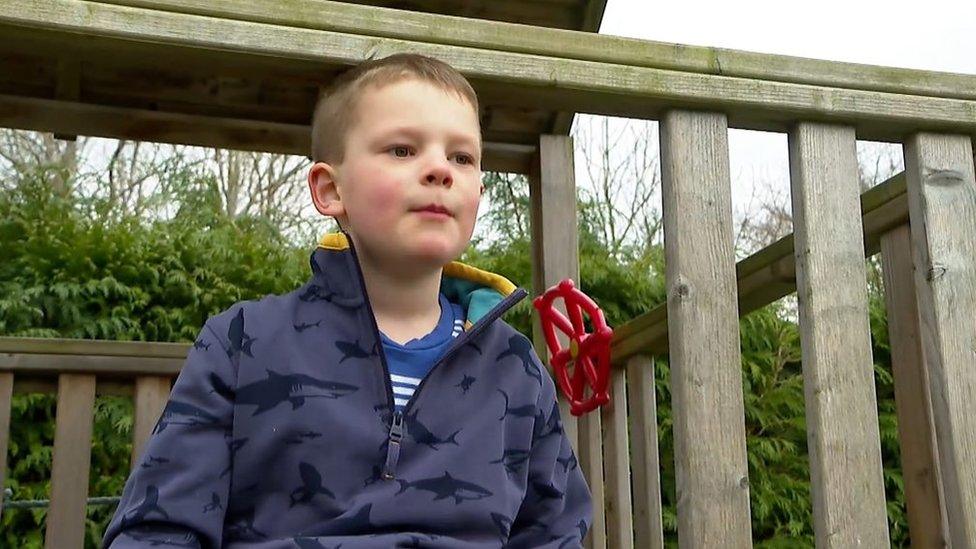Extra speech support for children in parks in Wales
- Published
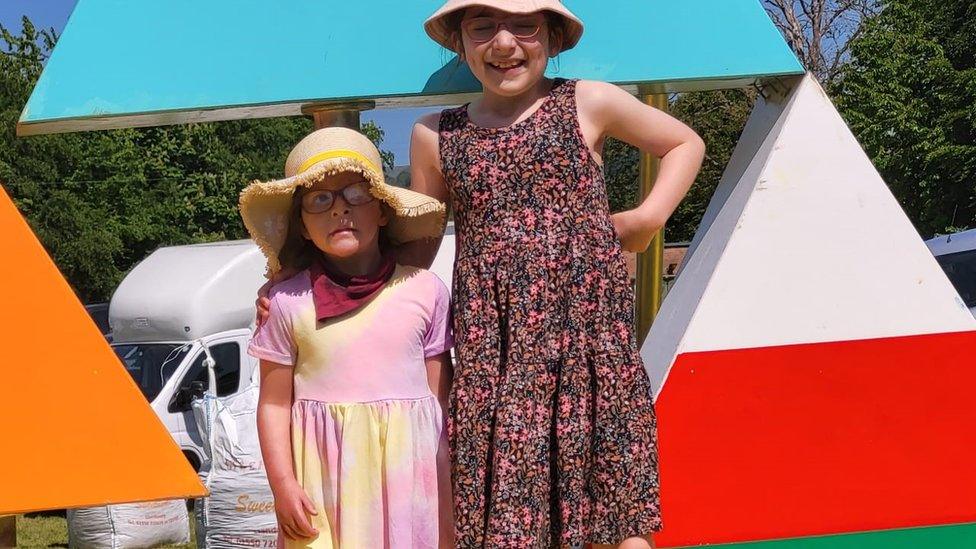
Five-year-old Lina, pictured with her sister Arwen, nine, has tried the communication board at a park in Caerphilly
Families with children in Wales who have difficulties with speech and language have welcomed the launch of new communication boards in parks.
More than 300 symbol-based communication boards have been installed in parks and public spaces to help children to interact and play.
Also, children who use voice technology to help them communicate will soon have more Welsh accents to choose from.
The schemes have received almost £300,000 of funding.
The money is through the Welsh government's Talk With Me scheme, which gives advice to parents and carers of children aged up to five.
The boards include a number of different symbols with useful words such as want, tired, wait, food and play.
Lina, five, from Caerphilly county, has recently had her first experience of the communication board at Morgan Jones Park in the town.
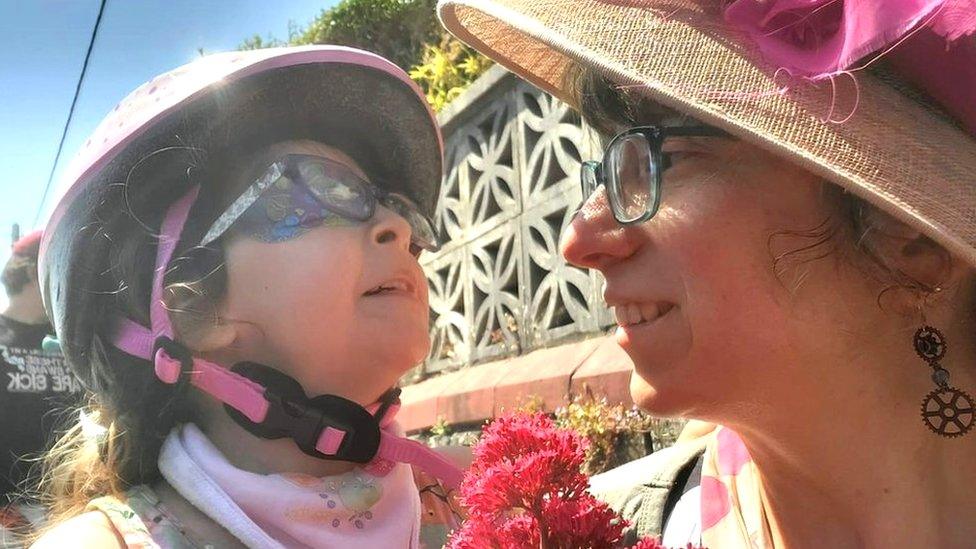
Lina's mum Rebecca Meyrick says having communication boards is a big help
Lina's mother, Rebecca Meyrick, said: "When young people are wanting to play and interact in the park, the last thing they want to be thinking about is lugging around either a tablet or paper or other communication pieces that are available."
'Upset and overwhelmed'
Libby Jeffries, speech and language therapist at Hywel Dda University Health Board, said: "We've heard of families in parks and a child being very upset and overwhelmed, and the family would have gone home.
"But they noticed the board, and the child was able to indicate what they wanted to do, and from that point it was a very positive play session in the park."
Meanwhile, the project to develop new Welsh voices and accents for communication technology will see a total of 16 new voices made available, reflecting different regions and dialects across Wales.
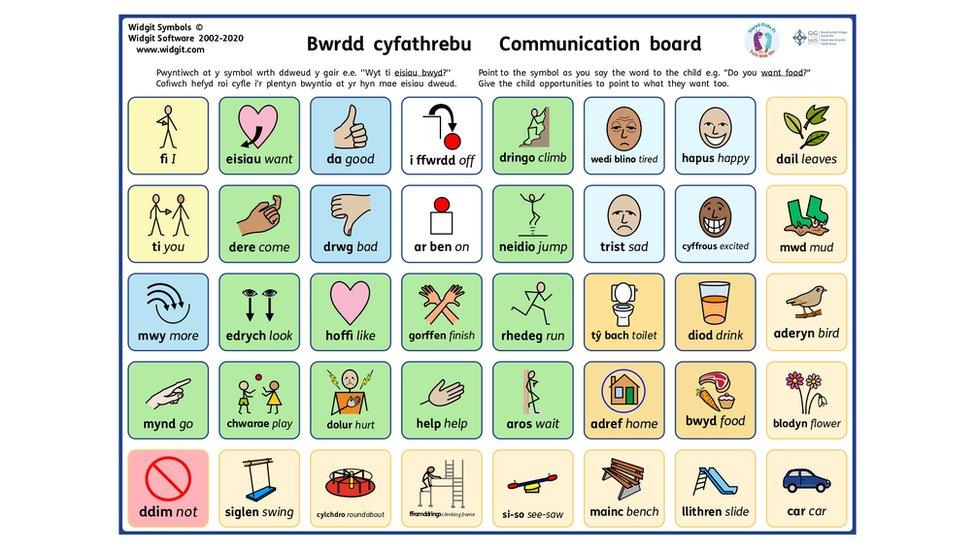
The boards are in more than 300 locations and help children communicate with others
At the moment children have a choice of Welsh adult voices in both English and Welsh, or an English-accented children's voice.
It has been developed by Cardiff and Vale University Health Board, speech synthesis company, CereProc and Bangor University.
Lina's father Anthony Meyrick said: "She'll be able to sound like her friends, because at the moment she really doesn't like anything that sets her apart from her classmates."
Dr Jeffrey Morris, head of the electronic assistive technology service for Wales, said: "We anticipate that these new voices will further reduce barriers to children using high-tech communication devices in Wales, allowing them to speak with an accent and language representative of their family and peers."
Related topics
- Published29 March 2022
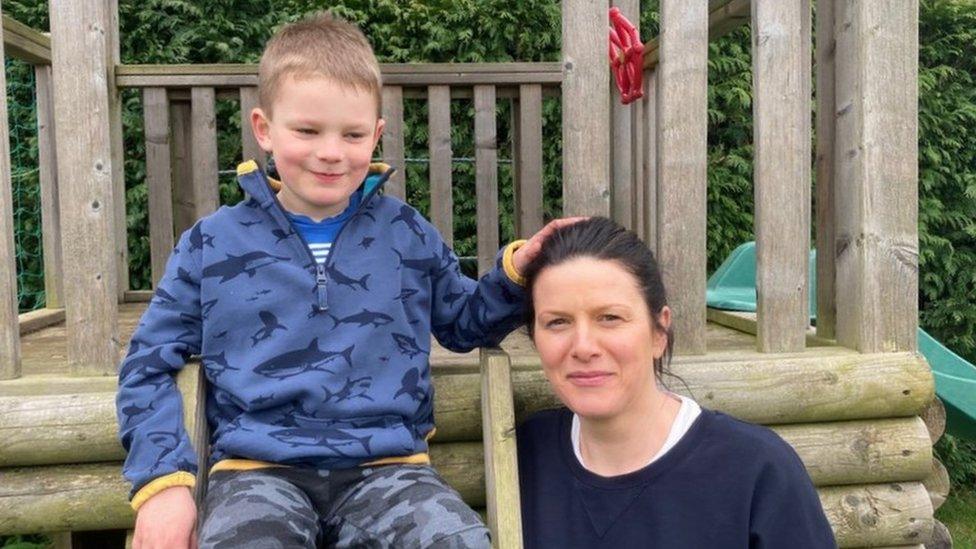
- Published29 March 2022
